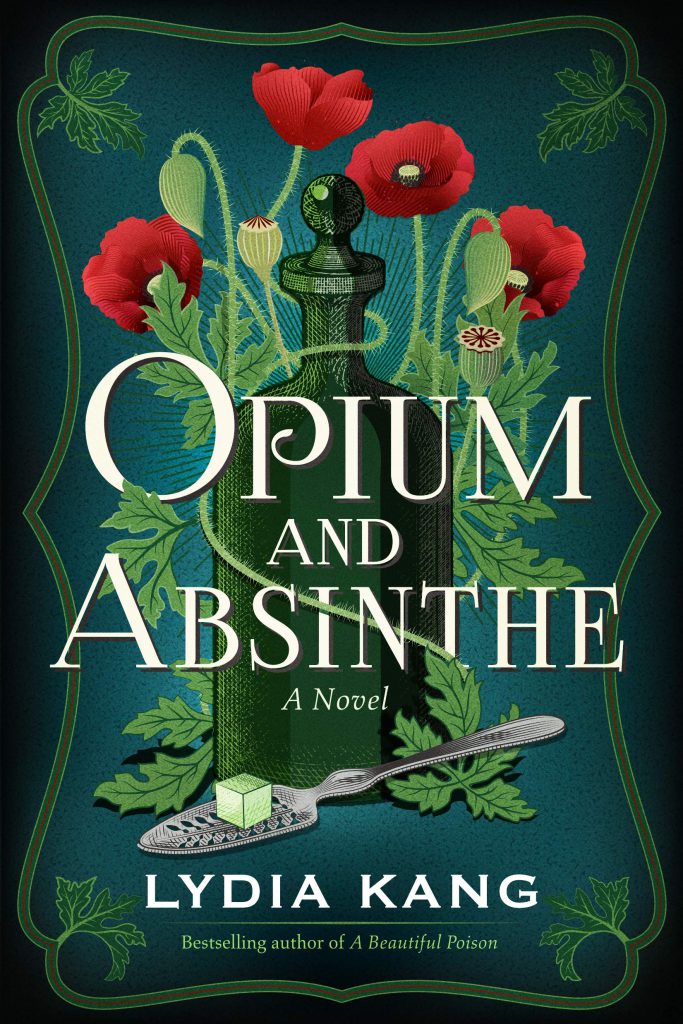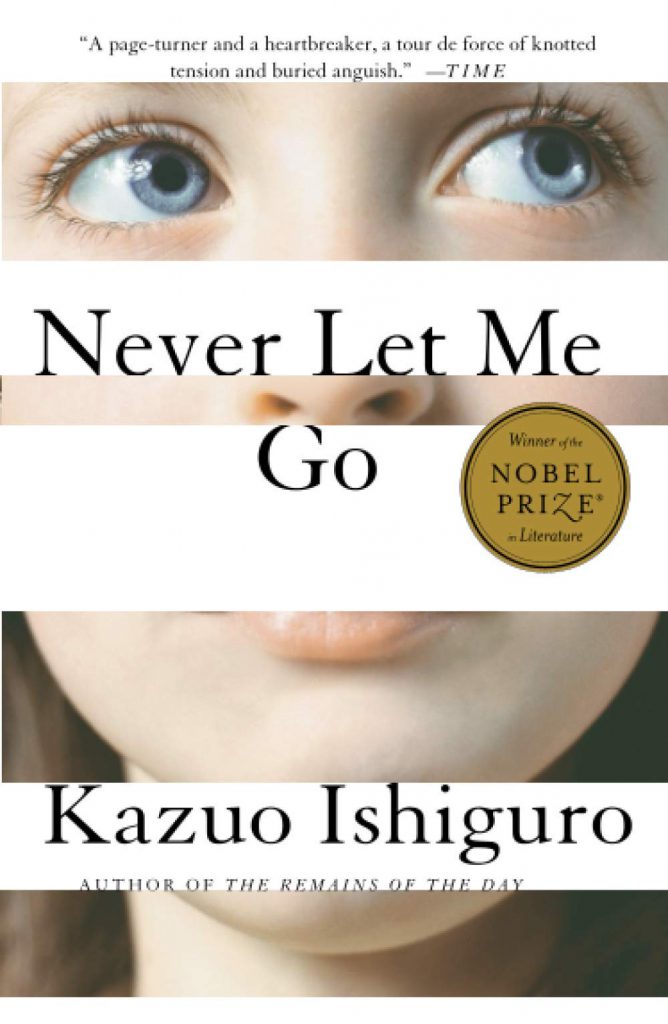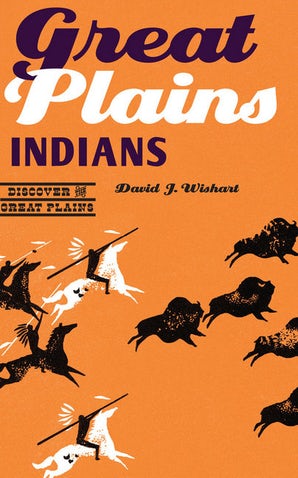Search the Blog
Categories
- Books & Reading
- Broadband Buzz
- Census
- Education & Training
- General
- Grants
- Information Resources
- Library Management
- Nebraska Center for the Book
- Nebraska Libraries on the Web
- Nebraska Memories
- Now hiring @ your library
- Preservation
- Pretty Sweet Tech
- Programming
- Public Library Boards of Trustees
- Public Relations
- Talking Book & Braille Service (TBBS)
- Technology
- Uncategorized
- What's Up Doc / Govdocs
- Youth Services
Archives
Subscribe
Tag Archives: Books & Reading
Friday Reads: Ponyboy, Poetry, Kees, and You
I have started reading too many books to write about just one, so for this post, this time, I’m writing about four books. A debut novel with Nebraska connections getting national critical attention, a poet often overlooked in favor of more famous compatriots, another Nebraskan of cinematic mystique, and a brand new non-fiction book about tech that will make you want to put down your phone camera. Let’s go!
Longlisted for a National Book Award, and written by an author born in Nebraska, Eliot Duncan’s Ponyboy is a globetrotting story with a trans, addicted protagonist—but the story is about relationships: between parent and child, within friend groups, and also the relationships we have with ourselves–and with our pasts and our futures. This is the first novel from the Iowa Writers’ Workshop alumnus. More about the book, the author, and recent press can be found at the author’s website .
I recently read about Gabriela Mistral, the first Latin American writer to win the Nobel Prize for Literature in 1945, and I want to read more of her work. I checked out this enormous book, The FSG Book of Twentieth-Century Latin American Poetry, because it shows each work in its original language as well as its translation into English. Being able to read Mistral’s poems in Spanish and English helps me appreciate her intentions and the beauty of her work. Mistral wrote about unexpected things in unpopular ways. You can read some of her work here.
Weldon Kees is a fascinating character, born in Beatrice in 1914. He had a colorful and exciting life in Nebraska and neighboring states, eventually moving to California, where he disappeared in 1955. He produced art in many forms, and also worked as a librarian, among other interesting jobs. After seeing a recent story about new acquisitions related to Weldon Kees at University of Nebraska Libraries, I picked up a used copy of The Ceremony & Other Stories. I am still waiting for the movie of his life. Check this link for a photo from Kees’ diary in 1954 to see a list of books and movies he enjoyed that year.
Your Face Belongs to Us is an important story about what happens when technology moves faster than ethics or the law. Kashmir Hill writes about the tech company that best optimized facial recognition software, and the various motives of the people involved with the project. If you think they don’t have your best interests at heart, you are correct. No matter your opinion of facial recognition software, if you’re interested in the technology and its effects, this is some old-fashioned shoe-leather reporting that will surprise and disturb you.
Duncan, Eliot. 2023. Ponyboy : A Novel First ed. New York NY: W. W. Norton & Company.
Hill, Kashmir. 2023. Your Face Belongs to Us : A Secretive Startup’s Quest to End Privacy As We Know It First ed. New York: Random House an imprint of Penguin Random House LLC.
Kees, Weldon and Dana Gioia (ed.). 1984. The Ceremony & Other Stories. Port Townsend Wash: Graywolf Press.
Stavans, Ilan. 2011. The FSG Book of Twentieth-Century Latin American Poetry : An Anthology. 1st ed. New York: Farrar Straus Giroux.
Friday Reads: Opium and Absinthe by Lydia Kang
It seemed good timing to read Lydia Kang’s Opium and Absinthe soon before Halloween. The vampire connection was enticing. The historical novel takes place in New York City in 1899, the year that Bram Stoker’s Dracula was published. Lucy Pembroke is found dead in an alleyway by puncture wound and drained of blood on the eve of her marriage ceremony. Mathilda (Tillie) Pembroke is Lucy’s younger sister. Tillie is determined to find the murderer. An overprotective mother and a controlling grandmother hamper her efforts. Tillie must go to imaginative and extreme lengths to escape the confines of her home to seek answers to her many questions about the murder.
Tillie’s challenges include an opium and morphine addiction that came about following a horse-riding accident. Intended to provide pain relief, addiction followed and continued. Opium and Absinthe places drug addiction as a central theme. Heroin is also notable, introduced by Bayer as a cough remedy. At the time, all were legal and commonly prescribed.
An intriguing mix of characters emerge including New York’s rich and privileged and the working class poor. The Pembroke family is among the city’s elite. The mystery unfolds at a steady pace and, at least for me, comes to a surprising end.
The book is included among CrimeReads Best Historical Fiction of 2020.
Described as among the great virtuosos of the crime genre, Lydia Kang is an author and an internal medicine physician. Her writings include historical mysteries, popular history, young adult sci fi, essays and poetry. Kang’s most recent book, Patient Zero: A Curious History of the World’s Worst Diseases, co-authored with Nate Pedersen, is a 2022 Nebraska Book Award winner for nonfiction – popular history. Kang’s The November Girl won the Nebraska Book Award for Young Adult Fiction in 2018.
Kang, Lydia. Opium and Absinthe: A Novel. Seattle: Lake Union Publishing. 2020
Book Club Spotlight – Bronx Masquerade
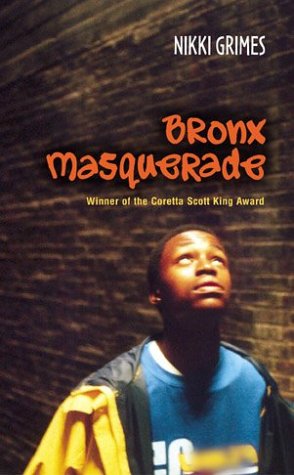
What sold me on Bronx Masquerade by Nikki Grimes was a Goodreads review that said “I hated it, but my students loved it!”. And that’s how you know you have a good book on your hands.
Bronx Masquerade is a fictional pseudo-narrative that hosts a collection of poems and slam poetry by Black and Hispanic high schoolers. Each poem and accompanying chapter gives the reader a short peak into the student’s lives. It’s a great way for your readers to explore other perspectives, and delve into how you never really know what’s going on beneath the surface of your classmates. Some poems are cheesy, and maybe even cringe worthy (especially facing its 20th anniversary), but that makes the story more realistic. Not every 16 year old is going to be the next Ocean Vuong or Rupi Kaur and that’s ok! Maybe there are some aspiring poets in your class that can take that to heart.
/…
“You have to take people one at a time, check out what’s in their head and heart before you judge.”
Nikki GRIMES
This title can be used in the classroom as a great introduction into contemporary poetry, especially slam poetry. It is recommended for grades 7-12 and has a slew of awards including the 2003 Coretta Scott King Author Award. Further information about the title, including a Teaching Guide can be found on the author’s website.
If you’re interested in requesting this book for your book club/classroom, use the Book Club Kit Request Form listed here.
Grimes, Nikki. Bronx Masquerade. Speak. 2002.
Posted in Books & Reading
Tagged Book Club, book club spotlight, Books & Reading, Diverse Books, poetry, slam poetry
Leave a comment
Friday Reads: “Never Let Me Go” by Kazuo Ishiguro
If you could save the lives of eight people by sacrificing the life of one, would you do it? Is it possible to break free of a path your life has been set on since before you were even born? If you create something, do you own it? What if the thing you created is a human? These are all questions a reader will find themselves grappling with in “Never Let Me Go,” the sixth novel by British and Japanese author, Kazuo Ishiguro.
An idyllic childhood spent at a boarding school in the English countryside, what could be better? Kathy spends her adulthood traveling around England working as a Carer, looking after hospice patients. After ’caring’ for two of her old classmates and reminiscing about how they grew up, all Kathy can think about is her childhood. As Kathy’s memories unfold so does the mystery and strangeness that is this “Brave New World” she lives in. With each new memory, we begin to understand just how different Kathy’s life has been, and we come to understand that what at first seems idyllic is far from it.
In “Never Let Me Go” the topics of childhood innocence, science and ethics, and free will are all explored in this thoughtful novel. Readers who like a slow burn and subtle, yet thought-provoking plot twists will enjoy this book.
Ishiguro, Kazuo. Never Let Me Go. Vintage, 2006.
Posted in Books & Reading
Tagged Books & Reading, Friday Reads, Kazuo Ishiguro, Never Let Me Go
Leave a comment
Friday Reads: Great Plains Indians by David J. Wishart
David Wishart covers a vast span of over thirteen thousand years in his book, Great Plains Indians. Many know bits and pieces of this astonishing story. Professor Wishart dispels a number of myths and provides important detail and perspective in his coverage of Indian life on the Great Plains.
Wishart describes in his Great Plains Indians historical account the elements of geography, climate, perseverance, innovation, culture, and adaptation. The book is organized in four broad chapters: coverage of thirteen thousand years of Plains history, life circumstances of Plains Indians around the early nineteenth century, the period Lewis and Clark explored the Plains region, and the period that began and continued with regional control by the United States.
Significant are the impacts of disease (notably smallpox), food sources, climate, horses, guns, alcohol, and beginning contacts and conflict with people moving into the Great Plains region.
Wishart provides extensive coverage of the nineteenth-century and continuing to the present geographic and cultural dispossession of the Great Plains Indians. Within a hundred year span, the Plains Indians land base was reduced from an area extending from Canada to the Gulf of Mexico to a territory inclusive of a small number of reservations in Oklahoma and other Plains areas.
A slim book, Great Plains Indians is written in a clear, concise style. Professor Wishart’s Great Plains expertise, and notably that of Great Plains Indians, provides the reader with a rich and informative historical presentation.
Great Plains Indians is among books in the University of Nebraska Center for Great Plains Studies “Discover the Great Plains” series (Richard Edwards, Series Editor).
David Wishart is a professor of geography at the University of Nebraska-Lincoln. The author of many books, Wishart is the editor of Encyclopedia of the Great Plains (2004).
Wishart, David J. Great Plains Indians. University of Nebraska Press, 2016.
Friday Reads: Prairie Forge by James Kimble
James Kimble’s Prairie Forge is the 2021 One Book One Nebraska selection. Prairie Forge is the story of a remarkable undertaking, launched in Nebraska, that inspired replication throughout the United States. With the United States entering World War II and the urgent need for resources, iron production was needed in ever-greater quantities for production of ships, planes, vehicles, weapons, and many other military necessities. Scrap metal was a critical need. That was the impetus for the Nebraska scrap metal drive of 1942.
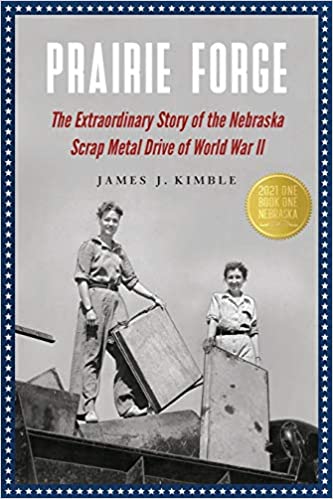
Henry Doorly, Omaha World Herald publisher, inspired by a challenge from his wife, Margaret Hitchcock Doorly, initiated a scrap metal collection project in Omaha. With motivation and dedication, Doorly developed a plan to encourage Omaha residents to donate scrap metal for the war effort. Committing the resources of the Omaha World Herald and his staff, Doorly initiated and championed the effort that expanded across Nebraska.
While not initially expected, Doorly’s plan grew from its beginning in Omaha to spread statewide. Competition among counties, businesses, communities and schools resulted in 67,000 tons of scrap metal gathered within a three week period. It wasn’t easy; there were numerous challenges and obstacles to overcome. Success resulted from motivation, inspiration, persistence, commitment to the cause, and the competitive spirit that led Nebraskans to meet the challenging goals set for the project.
The Nebraska plan and its achievements became a model for a national scrap metal drive. Ultimately, the national effort resulted in volunteer “scrappers” collecting 5 million tons of scrap. Professor Kimble contends that “the Nebraska Plan was successful because it brought the war home to civilians, enabling them to participate directly in the battle as something akin to combatants. Students, retirees, housewives, blue-collar laborers, and even children felt themselves becoming integral parts of the war.” Leadership came from many people and organizations across Nebraska, and notable were the contributions of news outlets that provided information for community organizers and other volunteers.
The scrap metal drive may be an overlooked footnote in World War II history books, but it was a significant contribution to equipping the war effort and the eventual outcome.
One book reviewer remarked that Prairie Forge should be in every Nebraska public library. Nebraskans are encouraged to read this remarkable book.
James J. Kimble, Ph.D., is Professor of Communication, College of Communication and the Arts, Seton Hall University. An expert in the communication field, he is the co-producer of Scrappers: How the Heartland Won World War II, a feature documentary on the 1942 scrap drives. James Kimble’s hometown is Norfolk, Nebraska.
Kimble, James J. Prairie Forge: The Extraordinary Story of the Nebraska Scrap Metal Drive of World War II. Bison Books. 2014,
Celebrate Nebraska’s 2020 Book Award Winners at Week Long Virtual Celebration
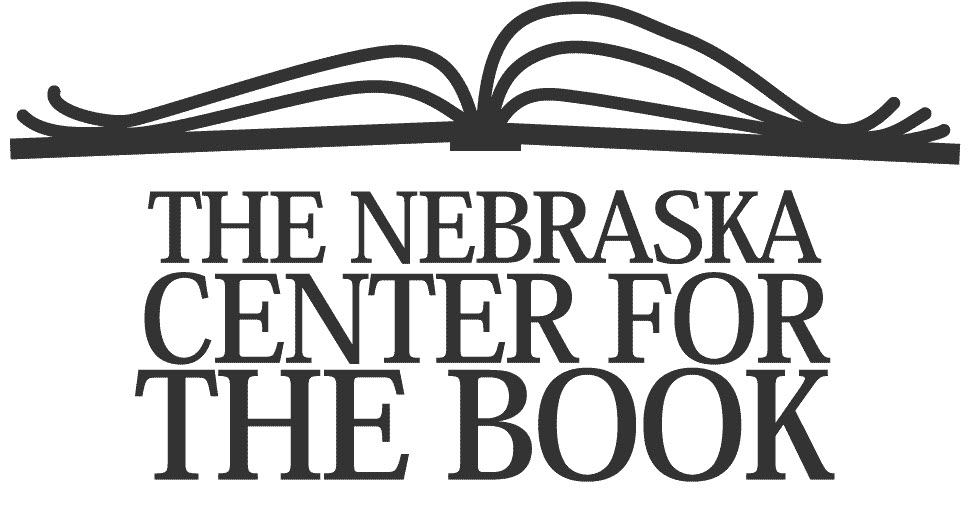
FOR IMMEDIATE RELEASE:
September 23, 2020
FOR MORE INFORMATION:
Tessa Terry
402-471-3434
800-307-2665
Celebrate Nebraska’s 2020 Book Award Winners at Week Long Virtual Celebration
Celebrate Nebraska’s 2020 Book Award winners with author readings and an awards presentation ceremony at the Nebraska Center for the Book’s week long virtual Celebration of Nebraska Books starting October 19th. Winners of the 2020 Nebraska Book Awards will be honored and the celebration will include readings by some of the winning authors, designers and illustrators of books with a Nebraska connection published in 2019. And the winners are:
Children’s Picture Book: Your Bridge to History by Portia Love & Preston Love, Jr. Illustrated by Regina Jeanpierre. Publisher: Preston Publishing
Children’s Picture Book Honor: Major: A Soldier Dog by Trevor Jones. Illustrated by Ming Hai. Publisher: Six Foot Press
Cover/Design/Illustration: The Spirit of Nebraska: A History of Husker Game Day Traditions – the Tunnel Walk, Mascots, Cheer, and More by Debra Kleve White. Design by Concierge Marketing and Publishing Services. Publisher: Cheerful Books
Fiction: See Willy See by Faith Colburn. Publisher: Prairie Wind Press
Fiction Honor Series: The Line Between: A Thriller and A Single Light: A Thriller by Tosca Lee. Publisher: Howard Books
Nonfiction Investigative Journalism: Zoo Nebraska: Dismantling of an American Dream by Carson Vaughan. Publisher: Little A
Nonfiction Nature Reference: Great Plains Birds: Discover the Great Plains by Larkin Powell. Publisher: Bison Books
Nonfiction Immigration Story: Citizen Akoy: Basketball and the Making of a South Sudanese American by Steve Marantz. Publisher: University of Nebraska Press
Nonfiction Nebraska Perseverance: Nebraska During the New Deal: The Federal Writers’ Project in the Cornhusker State by Marilyn Irvin Holt. Publisher: Bison Books
Nonfiction Native American History: Lakota America: A New History of Indigenous Power by Pekka Hämäläinen. Publisher: Yale University Press
Poetry: This Bright Darkness by Sarah McKinstry-Brown. Publisher: Black Lawrence Press
Poetry Honor: In a Good Time by Mark Sanders. Publisher: WSC Press
The virtual Celebration of Nebraska Books will also honor winners of the 2020 Jane Geske and Mildred Bennett awards. The Mildred Bennett Award recognizes individuals who have made a significant contribution to fostering the literary tradition in Nebraska, reminding us of the literary and intellectual heritage that enriches our lives and molds our world. The Jane Geske Award is presented to a Nebraska organization for exceptional contribution to literacy, books, reading, libraries, or literature in Nebraska. It commemorates Geske’s passion for books, and was established in recognition of her contributions to the well-being of the libraries of Nebraska.
The 2020 One Book One Nebraska selection, All the Gallant Men: An American Sailor’s Firsthand Account of Pearl Harbor by Donald Stratton with Ken Gire (William Morrow, 2016) will be featured in a keynote presentation. The introduction of the 2021 One Book One Nebraska book choice will conclude the festivities on Friday, October 23rd.
The Celebration of Nebraska Books is sponsored by Nebraska Center for the Book and the Nebraska Library Commission, with support from History Nebraska’s Nebraska History Museum. Humanities Nebraska provides support for One Book One Nebraska. The Nebraska Center for the Book is housed at the Nebraska Library Commission and brings together the state’s readers, writers, booksellers, librarians, publishers, printers, educators, and scholars to build the community of the book, supporting programs to celebrate and stimulate public interest in books, reading, and the written word. The Nebraska Center for the Book is supported by the national Center for the Book in the Library of Congress and the Nebraska Library Commission.
As the state library agency, the Nebraska Library Commission is an advocate for the library and information needs of all Nebraskans. The mission of the Library Commission is statewide promotion, development, and coordination of library and information services, “bringing together people and information.”
###
The most up-to-date news releases from the Nebraska Library Commission are always available on the Library Commission website, http://nlc.nebraska.gov/publications/newsreleases.
Throwback Thursday: Children Looking at Picture Books
Happy #ThrowbackThursday from Nebraska Memories!
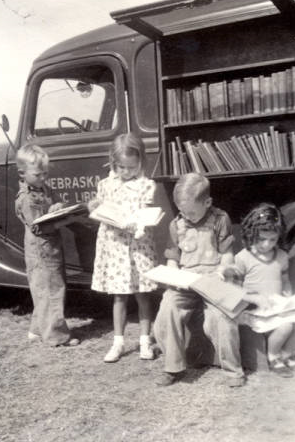
This image of Nebraska history is published and owned by the Nebraska Library Commission. The collection includes material on the history of libraries in the state of Nebraska, mainly those built with Carnegie grants. The collection also includes items from the 1930s related to the Nebraska Public Library Commission bookmobile, as well as items showcasing the history of Nebraska’s state institutions.
If you like history, especially Nebraska history, check out the Nebraska Memories archive!
The Nebraska Memories archive is a cooperative project to digitize Nebraska-related historical and cultural heritage materials and make them available to researchers of all ages via the Internet. The Nebraska Memories archive is brought to you by the Nebraska Library Commission. If your institution is interested in participating in Nebraska Memories, see http://nlc.nebraska.gov/nebraskamemories/participation.aspx for more information.
Friday Reads: All the Gallant Men by Donald Stratton (with Ken Gire)

All the Gallant Men is the Nebraska Center for the Book’s 2020 One Book One Nebraska selection. Donald Stratton’s memoir stems from his remarkable experience as a naval seaman serving on the USS Arizona. Stratton was among the survivors from the December 7, 1941, Japanese attack on Pearl Harbor. The book is the only memoir written by a USS Arizona survivor.
Stratton’s book is not one that I would have selected to read on my own. I read it because of its nomination for the One Book One Nebraska program. It didn’t take many pages before appreciating Donald Stratton’s story. It is remarkable and inspiring. The book is much more than an account of the Pearl Harbor attack. Donald Stratton’s life is chronicled from his early years growing up in Red Cloud, Nebraska, joining the Navy following high school, military experience as a seaman. Later, Stratton traveled the world as a skilled commercial diver in the oil industry.
Stratton was severely burned during the Pearl Harbor attack but managed, along with a few others, to climb hand-over-hand on a rope to an adjacent ship, an astonishing feat considering the 70 feet length and the burned hands of the seamen and the fires burning below. The rope was thrown by Joe George, a sailor from the other ship. The rope throw was a heroic act that was never fully rewarded because George disobeyed an order to cut the lines that tied the two ships. Without the rope, these sailors would have perished. Stratton had a long and painful recovery. Even so, he endured and with determination reenlisted in the Navy. Offered a non-combat post, he instead chose to return to a battleship and rejoin the war in the Pacific.
Donald Stratton’s story is dedicated to preserving the memory of the men aboard the USS Arizona – those that died and those that survived. In Stratton’s words: “I have tried my best to express what I could about what I experienced that day. It isn’t enough, though, because it is only one side of the story. The other side lies an ocean away. When you read a statistic, like 2,403 dead, it says so little. A statistical death is only the skeletal remains of a life. Without flesh and blood; its beating heart or its winking eye; its quick wit or its contagious laugh.”
I hope that many Nebraskans will read All the Gallant Men and that the book will lead to more stories about the experiences and sacrifices of those who serve and have served.
Ken Gire deserves recognition for his collaboration with Don Stratton to bring Stratton’s story to print. How that came about is an interesting story in itself (see writer’s postscript).
Described by family members as a humble and generous man, Donald Stratton passed away on February 15, 2020.
Donald Stratton and Ken Gire. All the Gallant Men: An American Sailor’s Firsthand Account of Pearl Harbor. HarperCollins. 2016.

